How to Promote an Amazon Product on Google AdWords

Amazon is, with good reason, one of the best affiliate marketing programs in the world today. The sheer scale, variety, and flexibility of the affiliate program makes it easy to make money, even on products you don’t directly promote.
With the right kind of conversion rate on the right kind of product, you can make a pretty significant return on investment for paid advertising. Just like Amazon is one of the best affiliates, Google is one of the best PPC programs available. So the question becomes; can you pay for Google AdWords placement for Amazon Affiliate links, sell products, and turn a profit?
A Question of Access
There are actually two questions in the title, though you might be forgiven for only picking up on one. It’s a matter of subtle wording. When promoting a product on Amazon, which situation is it? Are you using an Amazon Affiliate link and promoting something you aren’t selling, or are you a seller on Amazon promoting a product directly?
These are two different scenarios. At all steps along the way, you need to make sure you’re in compliance with both Amazon’s terms of use and Google’s AdWords policies. This can be a labyrinthine nightmare, particularly if you’re looking at the Google Help Forums for assistance. People there often speak from authority despite not quite knowing the rules, citing 5+ year old posts, and generally contradicting each other.
One problem with this whole situation is that it negates one of the primary selling points of AdWords, which is the depth of tracking information you get.
Affiliate links would pass some tracking information, but very little. If you’re promoting your own product without an affiliate link, you can get more data, but you still can’t put a tracking pixel in an Amazon Webstore, so you lose out on a lot of information. Of course, in this situation, you care less about analytics and more about sales.
Affiliate Links on AdWords
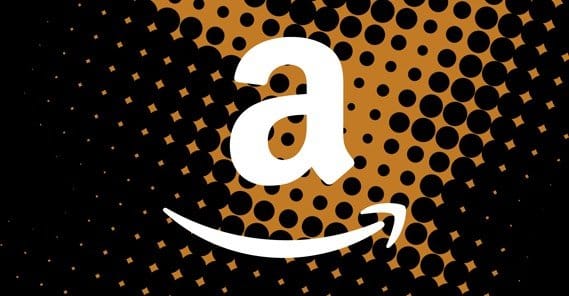
One interesting thing to note is that there’s a lot of old information and misinformation scattered on the web and in Google’s community support forums regarding affiliate links and AdWords.
As of right now, March of 2017, there appear to be no rules in the Google AdWords program policies prohibiting or restricting the use of affiliate links. You can read the AdWords policies here. They list prohibited content and prohibited practices, as well as restricted versions of the same, and none of them mention the word affiliate at all.
There are, however, some policies that do need to be followed. The two primary policies you might run into while promoting an affiliate link via AdWords are:
- Misrepresentation. Amazon is pretty good about this, thankfully. When you find a product on Amazon, you’re generally getting that product. You don’t see any of the Craigslist or old eBay scams where the “product” has a footnote that says something like “note: you’re paying for a photograph of the product, not the product itself.” Amazon is also up front about things like prices, billing practices, and fees, so there’s no deception there.
- Destination display URL. The URL listed on your ad needs to match the actual destination URL. This means you can’t use the fancy new Amazon shortlinks to advertise via AdWords; the amzn.to domain and amazon.com are different URLs, and even though Amazon owns them both, the mismatch is enough to trigger an ad denial.
That aside, Google doesn’t actually care if you advertise an affiliate link through their program. Rather, it is the affiliate program’s rules that might get in the way.
Using Doorway Pages
One technique people often attempt to use for affiliate advertising via AdWords is the creation of specific landing pages. The thought is to make a landing page on your site which advertises a product, shows reviews and descriptions and so forth, with affiliate links to Amazon from there. You advertise your own page with matching display URLs, circumventing restrictions on affiliate links, but all your interested traffic passes through to Amazon.
The problem here is that Google considers this a bridge/doorway/gateway page. These landing pages, which are solely designed to accept people from Google and deliver them to Amazon, have insufficient original content. You can read about that here. It’s grounds for dismissal from the AdWords program, or rejection of your ad, and there’s not much you can do about it beyond setting up your own storefront.
Amazon’s Perspective
The Amazon Associates program policies are a bit more strict with how you can and can’t advertise your links. They don’t like it when you promote through paid ads, for two primary reasons.
The first reason is because a lot of people try to get around their rules by using cloaked links or redirects, which goes against both their own and Google’s display URL rules. It’s a rule with Amazon that you can’t cloak the links you’re sending people through to Amazon. They don’t care if you’re cloaking other affiliate links, and they don’t necessarily care if you’re soft-cloaking them by still informing people that they’re Amazon links, but they definitely don’t like hard redirects to Amazon affiliate links.
The second reason is because it muddies the waters with their own advertising. Amazon uses Google and some other ad networks to promote their products, particularly the best-selling items in various categories. If you’re already in that space, they have to compete with you, and that means spending more money, earning less profit, and having to pay out affiliate commissions. It’s less hassle for them to simply say you shouldn’t promote affiliate links through AdWords.
Amazon also doesn’t like you using their trademark. If you’re advertising a product on Amazon, often you want to display the fact that it’s available on Amazon, to convey that trust and get people to convert. However, using the Amazon brand name or imagery is a violation of their trademark, and is cause for both them to shut down your Affiliate account and for Google to shut down your AdWords account if they complain.
Now, all of this considered, Amazon doesn’t specifically ban the use of AdWords for affiliate links. They simply make it difficult to actually profit in doing so, because of the commission they take, the commission Google takes, and the low value you get from individual sales regardless.
The Verdict for Affiliate Links
Can you promote Amazon affiliate links on Google via the AdWords program? Yes.
However, there are a lot of policies you need to keep in mind, those policies can change at any time, and you’re always risking both low profit margins, losses, or the loss of your account if you violate one of those policies on either end. Additionally, both Amazon and Google are very stingy when it comes to reinstating accounts that have been suspended, so it can be difficult to restore yourself if you do violate a rule.
Selling Your Own Products
Now what about the other situation, where you’re selling a product on Amazon, either through your own storefront or through shipping it to Amazon to fulfill themselves?
The answer is pretty simple. Google, of course, allows it. All of the above rules and rationale exists, but they’re harder to violate when you’re not using a referral link. Just make sure you’re using an Amazon.com URL to refer to Amazon.com, rather than using a shortlink or redirect page.
From Amazon’s perspective, it’s also fine, though the competition angle still exists. Neil Gaiman’s new book of Norse Mythology is advertised by Amazon as a best seller, for related keywords via AdWords. If Gaiman himself wanted to run an AdWords campaign to promote the book, he could, but he would run into competition with Amazon themselves. Two virtually identical ads for the same book from the same sales site competing with each other is not too valuable. The top one – generally Amazon with their insanely huge budget – will win out and get the most conversions.
Likewise, if you’re a bookstore like, say, Barnes and Noble, and you want to sell Gaiman’s book through Amazon, you can. Of course, you’re better off selling it through your own site rather than through Amazon’s. The only reason to sell through Amazon is if you don’t have your own web store and simply use an Amazon storefront to do your selling.
The problem you run into is a loss of profits. In a gross oversimplification, say you have a product that costs you $5 to produce and you sell it at $10, for a $5 profit on each item sold. Selling directly through your website, disregarding as of any kind, will net you a $5 profit per unit. Selling through Amazon in a storefront will take a commission, which for an individual is $1 per item, or a scaling variable fee for professional storefronts. Going with the $1 commission for simplicity, already you’re at $4 per item sold if you’re selling through Amazon. You may sell more, and you may get more trust through Amazon than your own store gets, but is that enough to counteract the 20% loss of profit?
Then you get to adding AdWords to the mix. AdWords, of course, is a PPC program, and it can cost quite a bit to compete in the ad auction for various keywords such that you get a reasonable number of commissions. Say it takes $2 per click to maintain the top spot for your competitive keywords. Now if you’re using AdWords to advertise your main site, you’re selling items at a $3 per unit profit when those clicks come from AdWords, or $5 per unit if they come organically. If you’re selling through a storefront on Amazon, you get $2 and $4 respectively.
However, that’s assuming a 100% conversion rate for the PPC ads. Plenty of people will click the ad but then not purchase the item. Every one of those is a reduction in possible profits, since you still have to pay for the ads, but you’re not getting the profit of a sold item. AdWords, then, can increase traffic but not necessarily sales or profits.
The Verdict for Direct Sales
Essentially, while there’s no explicit rules I can find against using PPC ads via Google to advertise a product, affiliate or otherwise, on Amazon, it doesn’t seem to be a winning proposition. You’re potentially risking both your Amazon and your AdWords accounts, you’re not guaranteed any real conversions beyond what you normally get, and you’re likely to lose out on profits entirely if the conversion rate is low, the ad auction cost is high, or both.
Better Solutions
If you’re selling products on Amazon or you’re running Amazon Affiliate links, it’s generally better to establish your own website with associated blog. You can set up a storefront if you like, though selling through Amazon directly is often perfectly acceptable for all but the most extreme ends of various niches.
This blog should be full of value on its own, to both attract attention via white hat SEO and to encourage conversions by way of trust in your brand. This blog needs to have enough independent value and non-Amazon external links to satisfy Google’s rules about gateway pages. It should also allow you to harvest various types of data about your users, like email address and demographic information. All of this will help you optimize ads and perform better market research, as well as allowing you to establish a presence outside of the highly competitive Google advertising world.
 ContentPowered.com
ContentPowered.com
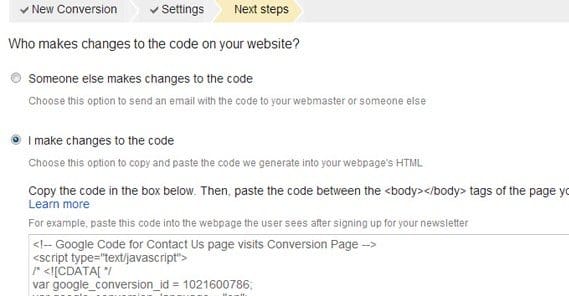

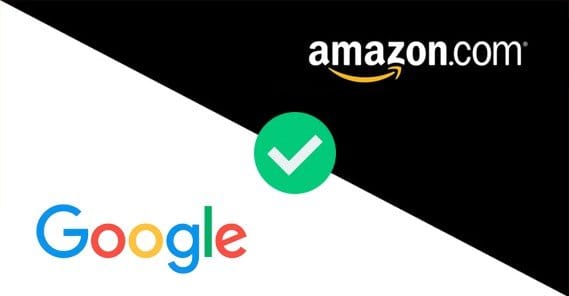

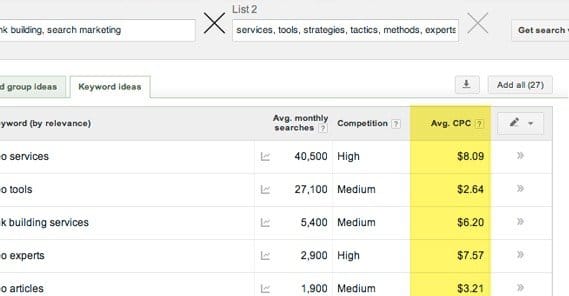
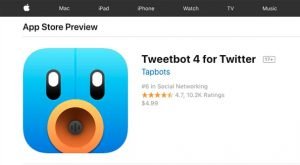

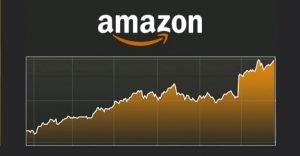

Maybe I’m reading something wrong, but my link to the “Associates Program Policies” says specifically un Disqualified Purchases: “(c) any Product purchased by a customer who is referred to an Amazon Site through any advertisement that you purchased through participation in bidding or auctions on keywords, search terms, or other identifiers that include the word “amazon”, or “kindle”, or any other trademark of Amazon or its affiliates (see a non-exhaustive list of our trademarks here, or variations or misspellings of any of those words (e.g., “ammazon”, “amaozn”, and “kindel”) (all, a “Prohibited Paid Search Placement”),”
So google adwords is not viable to promote amazon affiliate link. Again not cost effective to promote my own listed product in amazon. So what for is Google Ad Words for ?
I am searching the answers for the same purposes. I have read different opinions on this same discussion the article providing the right information as I have read. But last night I checked some sites those are running PPC Ads for Amazon Affiliate blog the sites also have the very high authority and also getting millions of google organic traffic. Then how are those sites advertising in google? Still, they are sending traffic via affiliate links to amazon and amazon also not have any issue with them. Anyone can help me to understand it what’s going on?